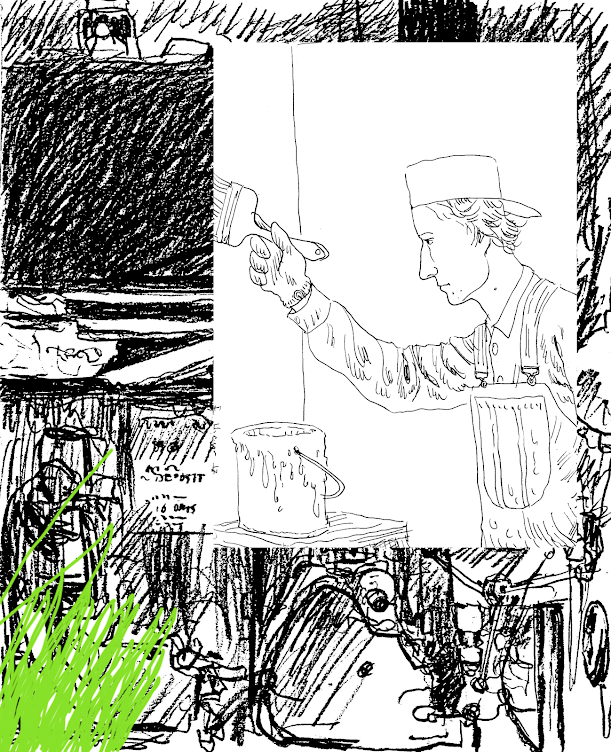
EXT. A SMALL KOREAN VILLAGE. AN EARLY SUMMER EVENING, MID-WEEK.
A WESTERN MAN is walking down the city's main street. To his left is Haemi Fortress, a medieval Korean fort. Its wall is built of unevenly-matched stones, each lightened by age to a gentle ochre, as if the stone itself has softened.
The MAN walking beside this wall has a peaceful expression on his face. But from his body language we can tell he's lonely.
VO: Those were the days before I met you.
SFX: A light breeze.

EXT. THE INNER COURTYARD OF THE FORTRESS. MOMENTS LATER.
The Western man sees a group of CHILDREN. They are giggling and playing with each other. Then one of them spots the man.

CHILD: 의국인! [Foreigner]
SECOND CHILD: [sing-songy] Hello!
MAN: [smiling] Hello.
ALL CHILDREN: [gleefully] Hello! Hello!
MAN: [speaking slowly] Can you speak English?
The CHILDREN suddenly start to giggle uproariously. But their amusement is more a symptom of shyness than a desire to carry the game any further. They run away, still laughing.
The MAN continues walking. He makes his way through small, sad, empty streets.

V.O.: Chris Marker once asked how we can remember thirst. What I want to know is, how can we remember loneliness? It penetrates not just oneself but the world. Reality itself appears changed. The side-streets suck themselves empty, their noise vacuumed behind shuttered store-fronts. The sky pulls itself as taut as a blue drum. The clouds starve themselves and harm themselves, like self-loathing anorexics.
And as the world seems to change, so does the self: feel lonely enough, and that juncture of soul and body that comprises what you think of as you becomes as parched as cracked soil. The lonely individual is ancient, he is dirt.
INT. AN EVANGELICAL CHURCH. TEN MINUTES LATER.

The MAN enters. He is somewhat surprised to see a CROWD OF WORSHIPPERS. They are very involved in their prayers.
The MAN walks cautiously forward.
A MIDDLE-AGED KOREAN MAN spots him.
CUT TO: CLOSE UP of MIDDLE-AGED KOREAN MAN.
MIDDLE-AGED KOREAN MAN: 하느님! 하느님이 자를 사랑하습니다! [God! God loves you!]
The MAN pulls back, alarmed.
EXT. A STREET. MOMENTS LATER.
The MAN is walking by himself again. He looks even sadder than before. A DIFFERENT CHILD spots him.
DIFFERENT CHILD: [especially enthusiastically] Hello!
V.O.: I don't know what it is was about that kid's voice. It went to my heart -- pierced it, like an exquisitely fine spear, the sharp end of sweetness. And it was this strange combination of sensations -- the needle's prick and the blood's sunny melt -- that suddenly transported me (there's no other word) to a different time. It was a time in the more recent past, when I still felt the residual parch of loneliness. But it was a time when I started to feel.
I mean, it was a time when I started to feel again.

